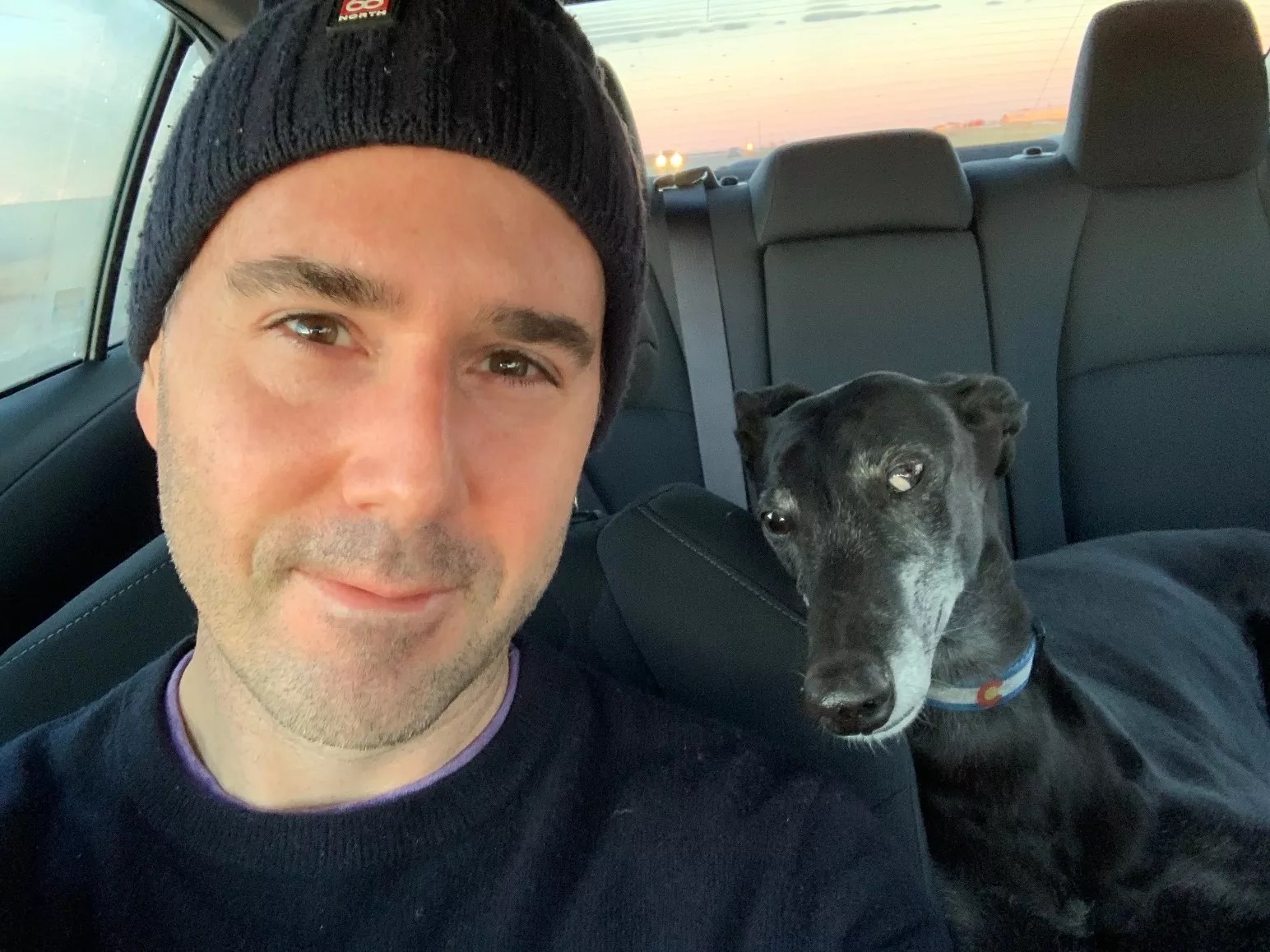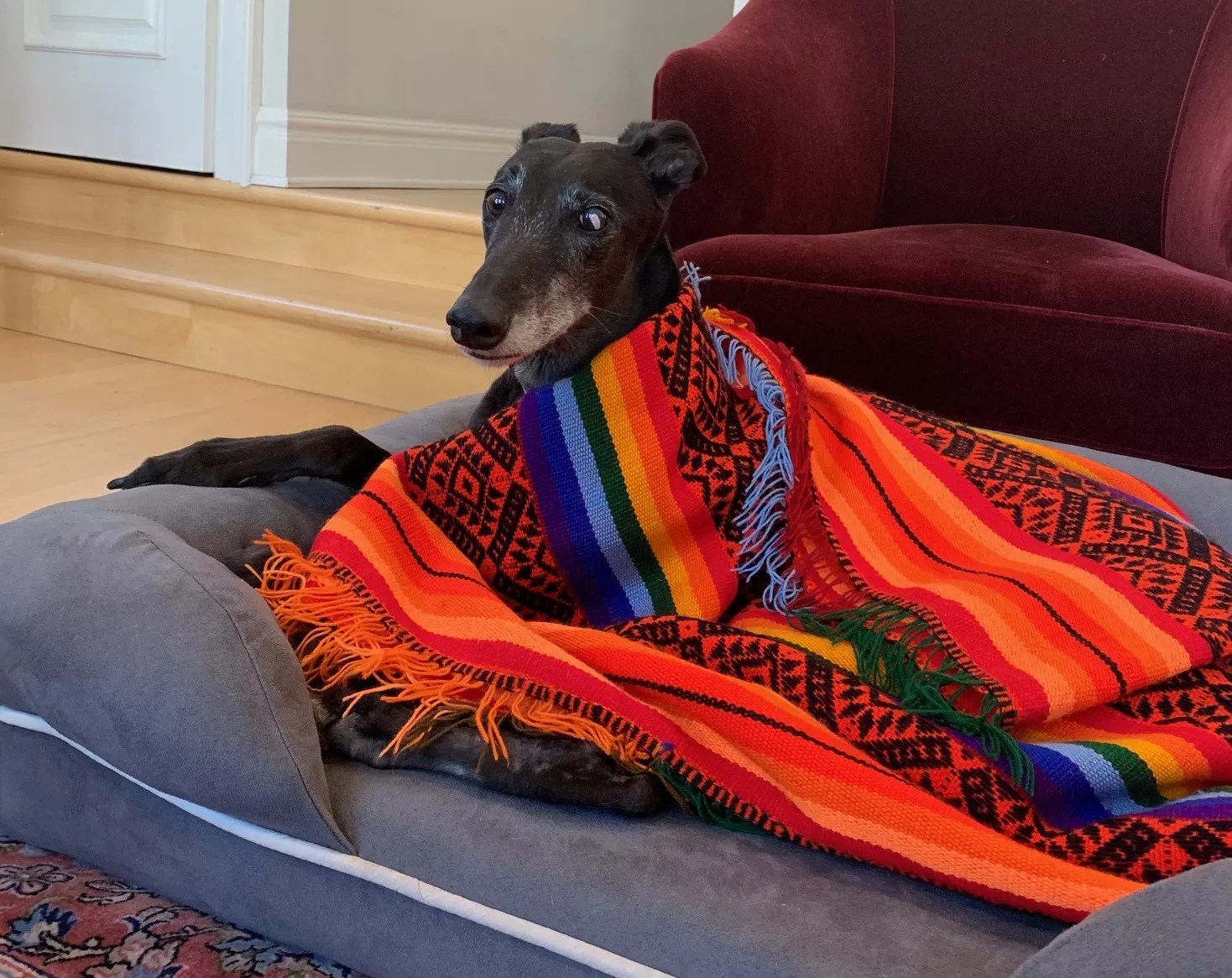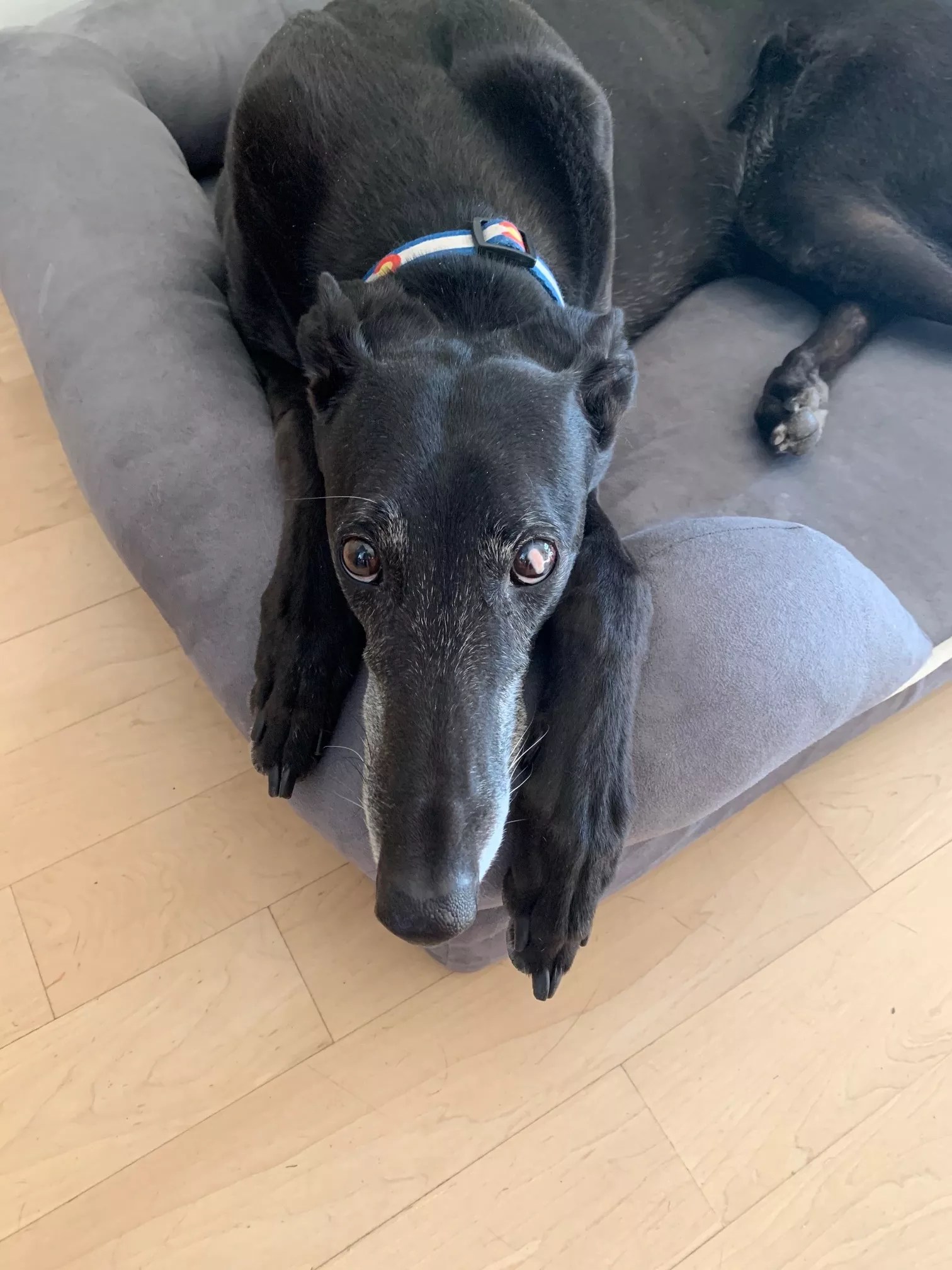
courtesy of Daniel Baer

Audio By Carbonatix
For dog lovers, one of the silver linings of the coronavirus pandemic has been witnessing the swelling of our ranks. What began as a trickle last spring became a torrent in summer and fall: dog adoptions and puppy pictures. On Twitter I mostly follow journalists, foreign policy experts, and current or former government officials. In recent months the normally staid posts in my feed were frequently interrupted by “Some personal news: welcome to the family [Astrid or Gus or Lola or Caesar]!,” accompanied by a mug shot of a wide-eyed pup.
These announcements always brought me a flash of joy – one amplified by my own awareness of how, in this loneliest of years, the companionship of a dog (or for some people, a cat) has been especially precious. Dogs inject such joy and love into our lives. And yet, as my grandmother says, “They are only lent to us.” A dog’s life is long enough for us to love them, long enough to define chapters of our own lives by their presence, but also short enough for us to know that we will likely outlive them and feel the pain of losing them.
We adopted Cleo, a beautiful, solid black retired racing greyhound, shortly after my now-husband moved from Switzerland, where he was finishing his physics Ph.D. research, to Washington, D.C., where I was working in the Obama Administration. Brian is an extrovert, and while extroverts can write dissertations, long hours alone take their toll. I would arrive home from my job at the State Department at 10 p.m., exhausted, to find Brian ready to talk. (And talk. And talk.) After a couple of months of this late-night mismatch of energy levels, I said, “Maybe we should get a dog?” He readily agreed.
And so, in the summer of 2012, we drove four hours north to a medium-security correctional facility in New Jersey to meet a greyhound who was in a foster-care program. (After being retired from racing, the dogs were loaded onto trucks headed north from Alabama and Florida, and some of the incarcerated individuals at this facility took care of the dogs while they awaited adoption.) An hour later, we – two excited humans and one anxious dog – drove home together.
Will you step up to support Westword this year?
We’re aiming to raise $50,000 by December 31, so we can continue covering what matters most to this community. If Westword matters to you, please take action and contribute today, so when news happens, our reporters can be there.
Six months later, I got a frantic call from Brian: Cleo’s leg, he said, had “snapped” in a fluke accident at the dog park. I rushed home to intercept him walking down a street in Dupont Circle, a 6’3″ lanky man, tears streaming down his face, with a helpless, 70-pound lanky dog draped in his arms.
Cleo recovered, and when the three of us moved to Vienna for my diplomatic posting the following year, she became a spirit-like hostess at the many formal events in our home. After guests had arrived, as they mingled in the large living room, Cleo would daintily tiptoe down the massive wooden staircase and weave silently through the assembled ambassadors and dignitaries, surveying the scene without disturbing a single conversation, quietly assessing the crowd before retreating back upstairs to await the end of the evening’s festivities.
Once, she might have revealed an undercover agent: It was whispered that the wife of one of the Russian diplomats in Vienna was an agent in the FSB (one of Vladimir Putin’s spy agencies). The few times that I met the woman in question at social events, she never said more than a greeting, and appeared to speak only in very labored English. One day I was walking Cleo in a park, and when we happened upon the Russian diplomat’s wife, without thinking, she exclaimed in flawless English, “My goodness, what an exquisitely beautiful dog!” (“Aha!” I thought.)
Last summer, eager to get out of the house for a socially distant change of scenery, we took Cleo camping in the Sangre de Cristo mountains. Greyhounds are not camping dogs; their long lines, graceful curves and sharp angles make them elegant but not particularly sturdy. It so happened that we chose an anomalous Colorado weekend for our getaway – it started raining as we pitched our tent on Friday evening and stopped as we pulled out of the campsite on Sunday morning. She was so gentle, abstaining from judgment as we sat there, 24 hours into our ordeal, two men and a greyhound in a three-person tent, listening to the rain fleck off the sides. She looked at us as if to say not “Why are you doing this to me?” (which would have been fair) but instead “Well, boys, at least we are together…I guess?”
Late last month, we took her to the vet for a routine teeth cleaning and returned home with a diagnosis of aggressive bone cancer. A week later, the warm afternoon of Easter Sunday, I carried Cleo out back so she could sit and watch while I pruned the tangle of rose bushes that had emerged from under the March snowstorms with new buds. She watched me intently for a while as I prepared the thorny shrubs for a season of rebirth before letting out a sigh, her neck dripping off the side of her bed so that her head rested gently on the wooden planks of the deck.

Courtesy of Dan Baer
Cleo predated our engagement and our marriage – “we” have been we three for most of our relationship. Brian and I both talked to her, sometimes using her as a medium to talk about each other. When we did this, we addressed her simply as “Dog.” As in: “Dog, can you believe we have to live with his jokes?” or “Dog, why didn’t he empty the dishwasher?”
In the last few weeks as we said our goodbyes, I found myself occasionally embarrassed by how my voice has cracked or tears have streamed down my face. Whether accurate or not, I realized that I have a sense that it is not entirely socially acceptable for an adult to visibly grieve a pet. I felt like I had to apologize for getting choked up.
Looking back, I’m struck by how much I came to depend on her companionship (especially remarkable since she was asleep for most of the time that we spent together – greyhounds are notorious couch potatoes and sleep for twenty hours a day). She has been a comforting presence – trusting, affectionate, responsive -through the ups and downs of the last decade. When the ground was shifting, she was constant. When I was doubtful, she was unrelenting in her love.
It’s not that I confuse or conflate her death with the loss of a person; I have known that loss, too. One need not make morally objectionable equivalences to describe this particular grief. I know that her death does not rupture the world in some cosmically significant way. But her death is a rupture in my world.
In fact, it’s not the similarities with the loss of a human loved one, but rather the differences that make the loss of an animal a special kind of pain. Just as the love that dogs give is the purest, most straightforward kind of love, there is a unique – undiluted, uncomplicated – quality to the grief that we feel when they leave us. There are no regrets for conversations we didn’t have. The grief does not have tentacles that wrap around or dredge up aspects of our own identities. When I wept for Cleo, I wept for her unmitigated goodness, not for unresolved parts of myself.
In this sense, perhaps the lesson I take from this experience is not that we should worry about pretending to grieve animals in the way that we grieve humans, but rather that, emotionally speaking, we should aspire to mourn humans in a way that is more akin to the way that we mourn animals: simple, generous, pure – without judgment or regret.

Courtesy of Dan Baer
It’s funny how it seems like we are the caretakers of animals – we feed them, we walk them, we clean up after them – and yet at some point we realize that it is really they who take care of us. Last year, I knew that Cleo was getting old; she had begun to slow down. As I tried to comprehend the massive loss of life in the pandemic, the grief of so many families, the way that a biological illness exposed anew social and economic ones, as -let’s be honest here – I spent more uninterrupted time with Brian than either of us bargained for when we got married, I occasionally sat next to Cleo, held her head in my lap and whispered, “You have to get us through this pandemic isolation. And through this election. Please do that for me. And then you can go, if you must.”
And she did. She got me to Joe Biden’s inauguration, and to Brian’s and my vaccinations. And then, this past week, she left. Good dog.
Dan Baer is a senior fellow at the Carnegie Endowment for International Peace; he served in Governor John Hickenlooper’s cabinet as executive director of the Colorado Department of Higher Education from 2018 to 2019 and was U.S. ambassador to the Organization for Security and Cooperation in Europe (OSCE) from 2013 to 2017. Follow him on Twitter at @danbbaer.
Westword frequently publishes op-eds and essays on matters of interest to the Denver community on weekends. Have one you’d like to submit? Send it to editorial@westword.com, where you can also comment on this piece.